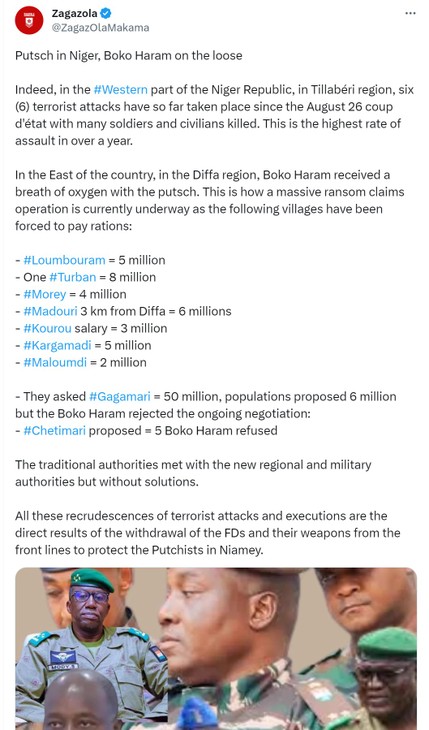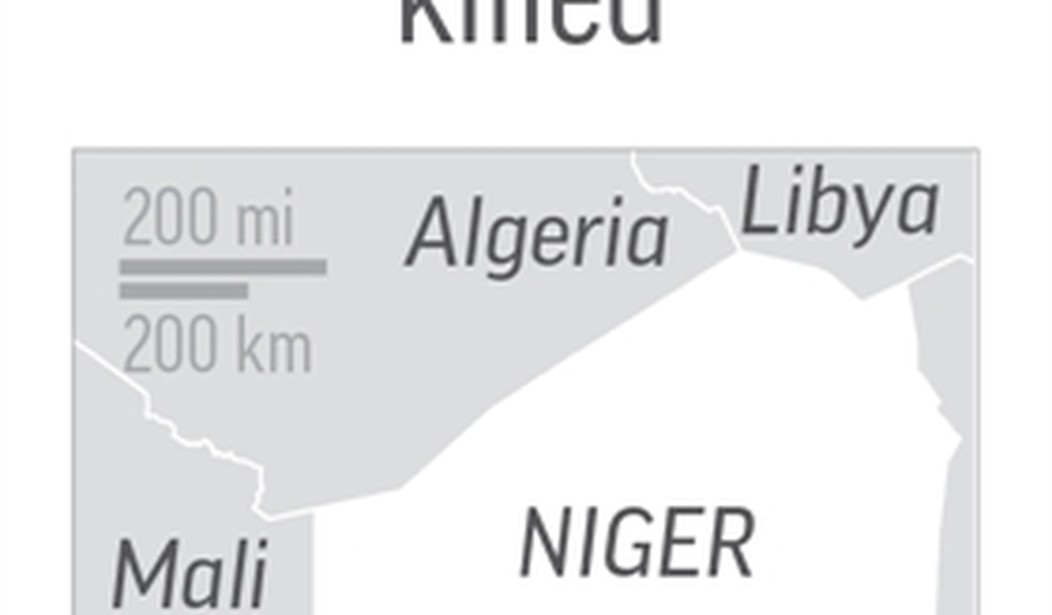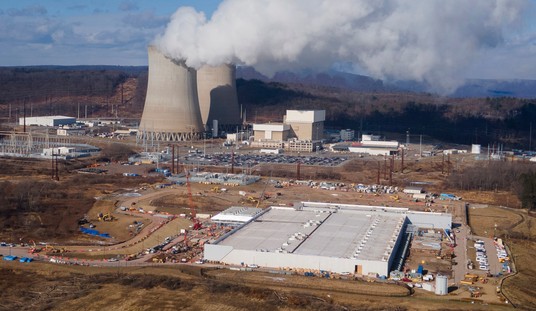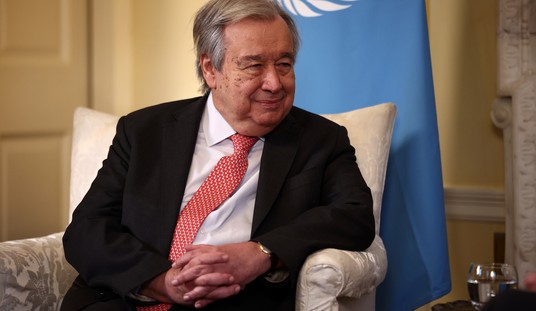Ah, the tango rumbles on that is the dance to deal with Niger’s coup d’état. Trying to keep the news straight with press releases from official sources versus what those sources are saying when they get in front of cameras for their own purposes? Damn near impossible.
Al Jazeera reported just yesterday that a group of Islamic scholars had met with the putschists at the head of the Nigerien junta. That report was pretty unequivocal there’d been an agreement reached to hold direct talks with the Economic Community of West Africa States (ECOWAS). The Nigerian sheikh leading the delgation said the junta leader was open to diplomacy.
A group of Nigerian Islamic scholars who met Niger’s coup leader have said the general has agreed to hold direct talks and resolve a standoff with West African leaders.
Sheikh Abdullahi Bala Lau, who led the Nigerian delegation, made the announcement on Sunday, a day after his group held talks with General Abdourahamane Tchiani in the Nigerien capital Niamey.
The fact that the army group in Niger is willing to talk with ECOWAS is great news. #ECOWASisWorking https://t.co/AhnDpNmu2z
— Gbenga 'Gøld' Ølørunpomi (@GbengaGOLD) August 14, 2023
About that General Tchiani – he’s large and in charge now, but just prior to the coup he helped orchestrate, his stock wasn’t trending so high. In fact, he was about to lose his main gig.
…The incumbent president, Mohamed Bazoum, had been planning to fire a general, Abdourahamane Tchiani, who commanded the elite presidential guard. Now that the coup has happened, General Tchiani isn’t going to be fired. Instead, he has proclaimed himself the head of the new military junta, which calls itself the National Council for the Safeguard of the Homeland.
The Occam’s-razor explanation may just be correct: A general who was going to be fired decided to fire the president instead. Many coups have such simple origin stories, triggered by factional rivalries within the military, and ambitious, self-serving men who would happily swap the barracks for the palace.
The putschists probably thought a coup was the perfect answer to their dilemma – after all, almost the entire Sahel is a solid Red belt of despots and dictatorships. Why not one more?
The problem is, he was taking down the last one still standing with a slightly Western lean to it. The rest of Africa has been watching the region topple like dominoes and, even with Niger’s repeated convulsions since receiving its independence (5 coups in the interim years), it did have a “democratically” elected president who, ECOWAS leaders felt, deserved their support.
…Whatever the reason for his gamble, Tchiani likely didn’t anticipate the intense opposition he has faced since seizing power. Most international actors, including Russia, have condemned the coup (though the Kremlin’s statement about respecting the constitution is best consumed with a grain of salt). And perhaps the most surprising threat to Tchiani’s plans has emerged from a major regional power broker, the Economic Community of West African States. The bloc of 15 West African countries, with Nigeria as its most powerful member, has taken a hard-line stance against the coup, even threatening military intervention. As a result, some have painted ECOWAS as a puppet of the West, the sharp end of the European and American spear.
Yet again, a simpler (and less geopolitically exciting) explanation is likely correct. ECOWAS may not be taking a tough stance against this coup because it’s a marionette or because it has an ideological aversion to Vladimir Putin; the governments of its member states may just be concerned about their own self-preservation.
“One reason why regional presidents are interested in military intervention is because they’re increasingly scared of being taken out themselves,” says Professor Nic Cheeseman, an expert on African politics at the University of Birmingham. “It comes after several other coups in the region, and they realized that they could be next if they didn’t draw a line in the sand.”
With ECOWAS having called upon their combined “stand by force” troops to begin a blockade while still looking for a diplomatic solution, the news out of the Islamic group’s visit seemed to be well-timed in a possible face-saving sort of fashion for all concerned.
It’s also Africa. So it didn’t last long.
The National Council for the Safeguard of the Homeland (CNSP) and/or the Military Junta of Niger has announced that they are planning to Prosecute and Convict the Former-President of Niger, Mohamed Bazoum and other Government Officials for “High Treason” against the Nation. pic.twitter.com/uZpHpm2134
— OSINTdefender (@sentdefender) August 14, 2023
That announcement’s going to upset the applecart again and has everyone in the region scratching their heads.
In the meantime, our military servicemembers are confined to the two bases in country, ergo there are no American drones in the air. With no eyes in the sky, the bad actors they’ve been watching – like ISIS and BokoHaram – are already raising hell with the locals.

It won’t be long before that show comes to a theater near someone else. There are immigration considerations as well.
…Niger’s coup may not have originated in great-power competition so much as in politics and other dynamics nearer at hand—but it could still have serious international repercussions. The security situation in the Sahel is deteriorating as jihadism rises. The junta governments that have taken power in the past three years have proved unable to combat it. Moreover, although many of the new military regimes—notably in Mali and Burkina Faso—have allied themselves with Russia, the Russian government and the Wagner Group are not exactly flush with spare cash or bursting with well-trained troops waiting to deploy to Africa, bogged down as they are by their debacle in Ukraine. In the coming months, the postcoup regimes in the Sahel are likely to realize that they’ve swapped Western partners, which had deep pockets and a long-term commitment to supplying foreign aid, for a diminished Kremlin that will inevitably overpromise and under-deliver. The money will eventually run out.
Europe has skin in the game: France, which is mostly powered by nuclear energy, gets roughly 10 to 15 percent of its uranium supplies from Niger. Moreover, in 2015, the European Union paid Niger’s government to effectively create a European “Sahel border,” shutting down pathways of migration through Niger toward the Mediterranean. The coup could reopen that route, reinvigorating the formerly thriving transit hub of Agadez. The United States cares about Agadez too: The American drone base Niger Air Base 201 is just outside the town.
If Niger’s junta manages to stay in power, it will almost certainly align itself with Russia. The interim regime has already announced the cancellation of several military agreements with France. But it’s in for a rude awakening if it cozies up to the Kremlin. Russia, as Mali and Burkina Faso are finding out, is rich enough to pay for small contingents of mercenaries and to line the pockets of greedy soldiers, but it is nowhere near rich enough to help provide for the broader population of one of the world’s poorest countries, where the GDP per capita is less than $600 a year.
Clear as a bell that it’s not only uranium, natural gas, or Niger’s recently discovered oil reserves at stake – the American troops trapped there now were already protecting our national security.
Which is why we should be worried to death.







Join the conversation as a VIP Member